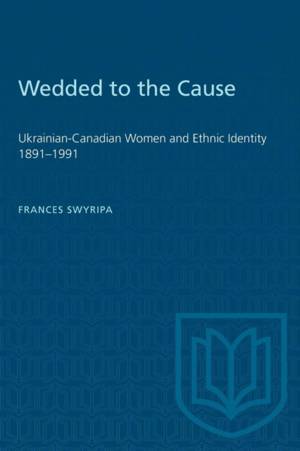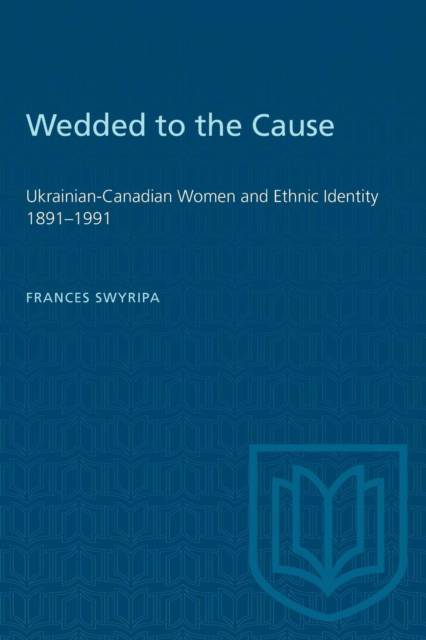
- Afhalen na 1 uur in een winkel met voorraad
- Gratis thuislevering in België vanaf € 30
- Ruim aanbod met 7 miljoen producten
- Afhalen na 1 uur in een winkel met voorraad
- Gratis thuislevering in België vanaf € 30
- Ruim aanbod met 7 miljoen producten
Omschrijving
Frances Swyripe here presents the interpretive study of women of Ukrainian origin in Canada. She analyses the images and myths that have grown up around them, why they arose, and how they were used by the leaders of the community.
Swyripa argues that ethnicity combined with gender to shape the experience of Ukrainian-Canadian women, as statelessness and national oppression in the homeland joined with a negative group stereotype and minority status in emigration to influence women's roles and options. She explores community attitudes towards the peasant immigrant pioneer, towards her daughters exposed to the opportunities, prejudice, and assimilatory pressure of the Anglo-Canadian world, towards the 'Great Women' evoked as models and sources of inspiration, and towards the familiar baba. In these stereotypes of the female figure, and in the activities of women's organizations, the community played out its many tensions: between a strong attachment to canada and an equally strong attachment to Ukraine; between nationalists who sought to liberate Ukraine from Polish and Soviet rule and progressives who saw themselves as part of an international proletariat; between women's responsibilities as mothers and homemakers and their obligation to participate in both Canadian and community life.
Swyripa finds that the concerns of community leaders did not always coincide with those of the grassroots. The differences were best expressed in the evolution of the peasant immigrant pioneer woman as a group symbol, where the tensions between a cultural ethnic consciousness and a politicized national consciousness as the core of Ukrainian-Canadian identity were played out in the female figure.
Specificaties
Betrokkenen
- Auteur(s):
- Uitgeverij:
Inhoud
- Aantal bladzijden:
- 346
- Taal:
- Engels
- Reeks:
Eigenschappen
- Productcode (EAN):
- 9780802069399
- Verschijningsdatum:
- 15/12/1993
- Uitvoering:
- Paperback
- Formaat:
- Trade paperback (VS)
- Afmetingen:
- 156 mm x 234 mm
- Gewicht:
- 530 g

Alleen bij Standaard Boekhandel
Beoordelingen
We publiceren alleen reviews die voldoen aan de voorwaarden voor reviews. Bekijk onze voorwaarden voor reviews.











